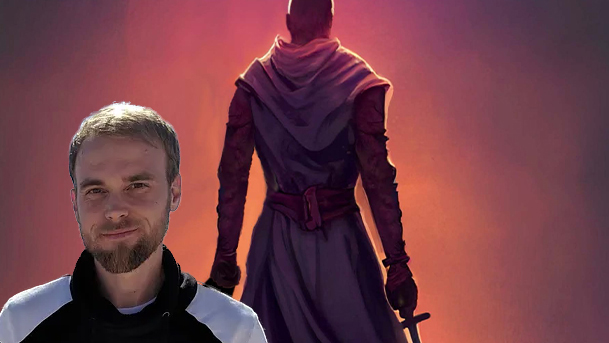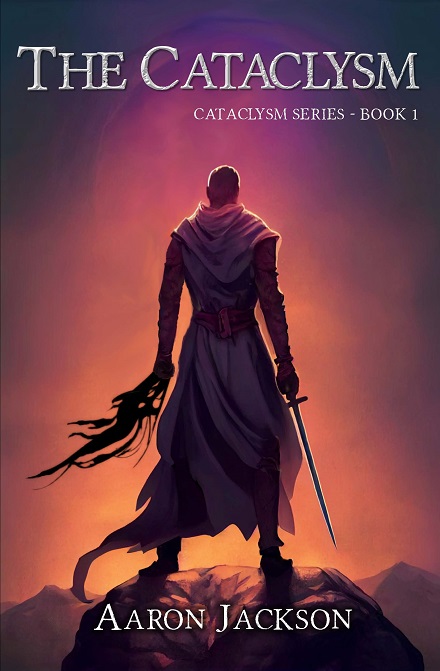Welcome travelers. Last week on the Tellest site we presented the work of Aaron Jackson, an author who just recently published the last part of his epic trilogy, aptly called The Cataclysm Series, as it takes place in a broken world. Yet despite that, it still comes across as rich, deep, and beautiful. In today’s article, you’ll discover more about the world of Argana, and about Jackson, who is on a roll, and doesn’t seem to be stopping anytime soon.
Tellest: Greetings, Aaron. I want to thank you for taking time out of what must be a busy schedule to chat with me about your wonderful books and the harsh yet rich world in which they take place. I’m excited to show readers who may not have had the chance to explore your works what Argana looks like, how it came to be, and how you came to dream it up.
Aaron Jackson: Excited to talk with you about it. I’ve had a lot of fun looking through the Tellest site, I can tell there is a lot of passion and hard work that went into it.
T: Thank you Aaron! I really appreciate it. And I could say the same about your website, but those would be spoilers—we’ll definitely touch on that again shortly.
My first interview question always revolves around the inspiration that began your writing journey. Every great epic begins with an important step, and I’m interested in finding out about yours. When you were growing up, was there a particular author or story in the fantasy genre that stood out to you as the one that captivated you?
AJ: The journey has been a long but fun one. I never actually expected I would write a full book, let alone three. The project started out as just jotting down characters, locations, and a system of magic, like a D&D campaign with no intentions of making a book out of it. After I continued to flesh it out, the story just started falling into place, so I committed. However, I did write a story in elementary school called ‘The Liquid Dragon’ which won first place in a story competition, which of course is a pretty big deal, so maybe my path was already laid out a long time ago.
I’ve been reading fantasy books for as long as I can remember and ones that stick out to me the most are the DragonLance series. The old-school fantasy books are always some of the most fun.
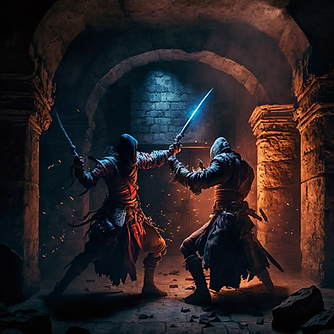
T: There’s something about the Dragonlance shared universe that certainly has a way of spawning new worldbuilders. That world is also one that is under constant threat, although it hasn’t quite been bled as dry as your world has been. In any case though, would you say that there were some hints of Dragonlance that made their way into your writing?
AJ: There are some aspects of the storytelling that did, but it is less high fantasy than DragonLance. The difference between good and evil is also less distinct, especially in the races of the world and the main characters.
T: Was the greyer look at the characters intentional, or was it something that became natural as you wrote the stories?
AJ: I tried to avoid some of the common themes like the righteous hero vs evil villain. When characters are cast like this, the story becomes more predictable in my opinion. Characters respond less to a situation and just act how they normally would. In the Cataclysm books, there are still a few characters that certainly fall on either end of the scale of good or evil, but most are somewhere in the middle and move around on the scale along their journey.
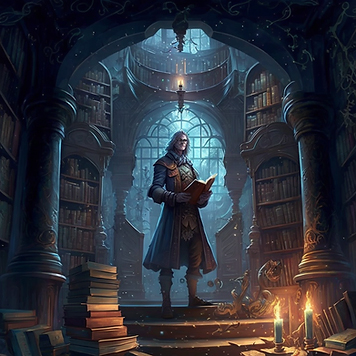
T: Let’s get right into it and find out more about Argana, the Blasted Lands, and the Cataclysm. What made you decide to write a story about a world already hammered by terrible disaster, and how does it affect the tales you tell?
Additionally, each of your chapters is preceded by flash fiction that gives greater context about life before and after the event that decimated the world. How does this impact the reader’s experience?
AJ: I’ve always liked the concept of a world changing event in books. It creates a fresh start for the story and removes the need for a ton of background information. I feel stories can get bogged down when a reader must keep track of extensive history, lineage, or houses, so I decided to start my story with a brutal event and remove a lot of that clutter. The short stories I wrote before each chapter gives some important background info and a glimpse into the world prior to the Cataclysm, but in a more fun and unique way.
T: With something like this preceding the events of the book, do you ever think about one-upping yourself in some ways, and putting an even worse catastrophe in front of your characters? Or are these stories more character studies with less at stake because of how much Argana has already been through?
AJ: The Cataclysm was long enough ago that none of the main characters were alive when it happened. While the main cast may live in a world forever changed, they get to experience their own unique journeys without comparison to such a monumental event. Without giving away any spoilers, I was once given some very good advice about the structure of a trilogy. For conflict: book one – city, book two – country, book three – world. Therefore, readers can expect a crescendo of events where the stakes at the end of the series could be just as impactful as the Cataclysm was all those years ago.
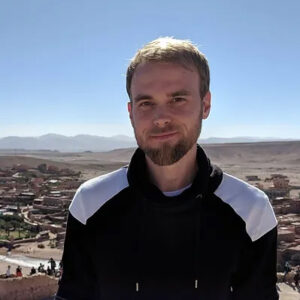
T: I love that sort of sense of presence for the character journey, and I’ve sort of unconsciously adopted that premise as well. There’s something about expanding your heroes’ points of view and showing just how far they’ve come. In a lot of ways, it’s like leveling your characters even in a situation like this where readers are experiencing it alongside them.
With that in mind, was it difficult giving them higher stakes, or was it something that happened organically?
AJ: I never had the ending in mind when I started the books, which looking back, was both good and bad. The story was a natural progression of the characters and the world around them.
T: Your third book has recently come out, and you released each of these books one after the other very quickly. Have you been planning a quick set of launches for these for a while, or are you a writing phenom who can deliver content immeasurably fast?
AO: These books have been in the works for a very long time. The first two books were originally one that I had to split in half because over the decade it took to write it ended up getting too long… After I was done with the first two, I knew it needed to be a trilogy, so I grinded it out and finished the last one in about a year and released them all within a month of each other.
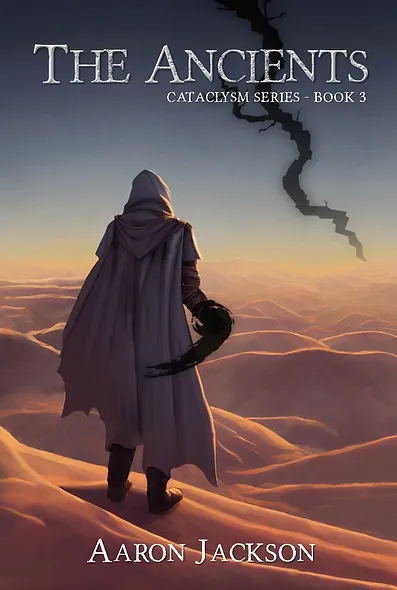
T: For marketing purposes, you probably did the best thing you possibly could be launching these so close together. Have you seen any impact by releasing them in such quick succession?
AJ: Feedback has been great so far. I did the right thing to release them quickly to keep momentum up.
T: For upcoming books, are you planning on trying to keep up the same momentum, or are you going to sort of dial things back, collect your work, and then release in rapid succession again when you’re ready?
AJ: It’s hard to say, but at this point, with work already out there, I would likely release a book once I finish it.
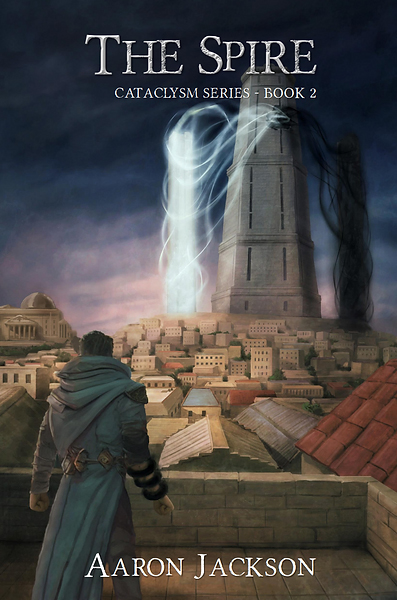
T: On your website, there is a tremendous amount of art content that helps readers to immerse themselves in Argana. How do you go about amassing that content? Do you partner with anyone in particular? Have you considered putting together an art book cataloging all that great art?
AJ: The concept art on my website is all AI generated. I know AI art is a very touchy subject these days, and I completely understand why. But I think if used correctly, it can be a very powerful tool for storytelling. After hiring artists for the book covers and the hand-drawn illustrations at the beginning of each chapter, there was no way I could feasibly continue to explore Argana through those mediums from a cost perspective. AI art not only let me bring the story to another level and let readers visualize the locations and characters, but it was a ton of fun to experiment with and kept me motivated throughout the writing process, especially during the editing phase.
T: I like to almost think of it as a toll that one pays to play with that sort of toolset. You’re clearly interested in working with artists to get the best that you can when it comes to your more commercial-facing items like the covers and the illustrations, but when it comes to concept art, that’s the piece that you spend time developing. And in some ways, utilizing and training the AI to get you what you’re looking for is almost an art form of its own.
AJ: That is a great way to put it. AI can be a very engaging and constructive process. You can put in a prompt and get thirty iterations that are useless, and then on the 31st try, it’s exactly what you imagined. All we can do is try to be responsible using the tool, because it’s not going anywhere.
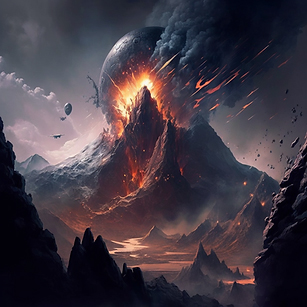
T: Have you considered using AI for things outside of art? For instance, would you use it to develop story threads for other aspects of your world?
AJ: Unlikely for any sort of storytelling. The process of creating ideas and writing them down are the fun parts for me so I wouldn’t want to outsource it. Editing on the other hand… maybe.
T: Though you’ve expressed yourself with these three books, as an artist you’re always learning and improving. What were some of the biggest ways you’ve surprised yourself with your story or your narrative skills throughout your journey?
AJ: Self-doubt always rears its ugly head, so the fact that I have had so much positive feedback from The Cataclysm is the most surprising and validating part of the journey.
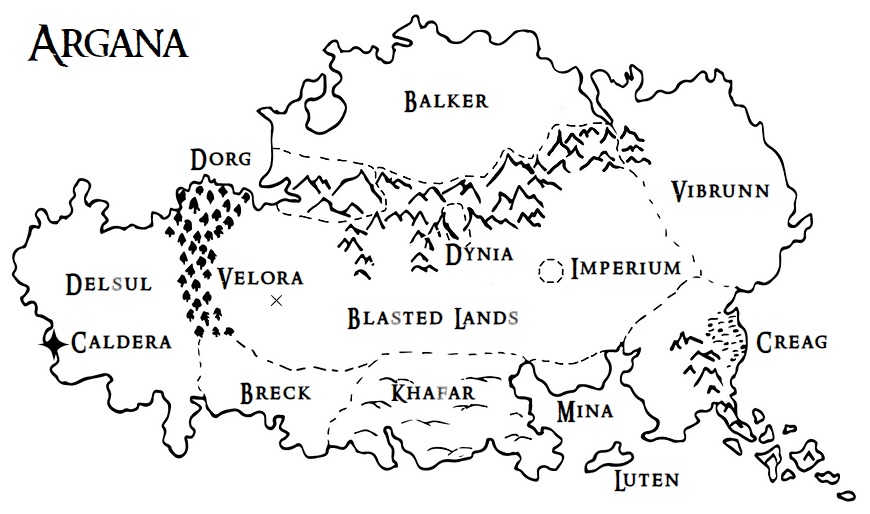
T: Have you already found your first superfans? Who is your biggest cheerleader on a sort of adventure like this?
AJ: The most surprising fans of my books were from friends who had previously never been interested in the fantasy genre or read any of the classics. They’ve read each installment in the Cataclysm series a few times and were always a great source of motivation.
T: With the third book in your series released now, what’s next for your world? Do you have plans to extend things beyond the trilogy? Are you going off on side missions, so to speak? Or is there something completely new that you are going to explore?
AJ: I definitely plan to continue exploring the world of Argana, but The Cataclysm series and the events in the book are complete. I have many more ideas floating around for follow up books and have started working on them already. I may be biased, but I really like the magic system in the series and there is still a lot than can be done with it.
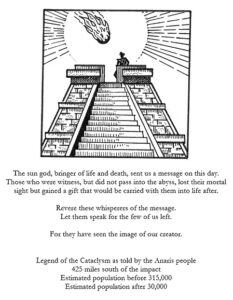
T: Without expecting you to share too much, are we moving forward in the timeline, or are we taking a step to the side or backward?
AJ: This would be a few generations in the future, possibly relations of the main characters, but would be standalone. Excited to start the process again!
T: You mentioned your magic system earlier. What is it about Argana’s magic that sets it aside from other fantasy, and how did you come up with it?
AJ: I tried to make the magic system based loosely on physics. Everything revolves around energy or the absence of it, light, dark, cold, hot, or even sound. The total energy of a system changes in different environments. Mages channel that energy and that manipulation can be very taxing on the body. This creates limits on mages and gives structure to what spells can be used in different situations. I think it’s a good mix that doesn’t make magic overpowered.
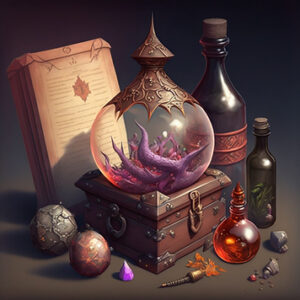
T: If someone wanted to know more about Aaron Jackson and Argana, where would they go? Do you have a website, or do you recommend people find you on a specific social media channel?
AJ: The author website is about the extent of my online presence. www.aaronjacksonauthor.com
T: Aaron, I wanted to thank you for taking the time out to speak with me about your world and your process. It was very interesting to see the periphery of what makes you tick, and I’m very excited to see what comes next for you!
AJ: It’s been fun chatting with you. Thanks for the opportunity to share my story!
T: Once again, I’d like to thank Aaron for spending time talking with me and leading me through the process of creating his book and his world. You can see just how passionate about what he’s crafted here, and that should definitely be appreciated by his readers and fans. If you’re interested in reading his completed trilogy, go ahead and start with the first book. Check out The Cataclysm (The Cataclysm Series Book 1) on Amazon today!
Michael DeAngelo
Latest posts by Michael DeAngelo (see all)
- Fantasy Promo – Quinine - July 25, 2024
- Sigil Art – Grim’s Hold - July 24, 2024
- Fantasy Promo – Light the Shadows (Under Elfhame’s Stars) - July 24, 2024
